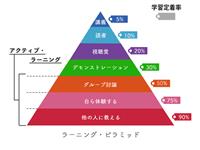MARKETING MANAGEMENT
What is marketing?
? To attract and retain customers at a
profit (Drucker,1999)
? To establish,develop and
commercialise long-term customer
relationships so that the objectives
of the parties involved are met
(Gronroos,1989)
Efficiency and Effectiveness
Ineffective
Goes out of
business quickly
Dies Slowly
Survives
Does well
Thrives
Effective
Efficient
Inefficient
5
2
Marketing Concept
The achievement of corporate
goals through meeting and
exceeding customer needs
better than the competition
The Marketing Concept
Customer orientation
Corporate activities are
focused upon providing
customer satisfaction
Integrated effort
All staff accept the
responsibility for creating
customer satisfaction
Goal achievement
The belief that corporate
goals can be achieved
through customer
satisfaction
Marketing concept
The achievement of corporate
goals through meeting and
exce ding customer needs
better than the competition
Customer
orientation
Corporate activities
are f cused upon
providing customer
satisfaction
Integrated
effort
All staff accept the
resp nsibility f r
creating customer
satisfaction
Goal
achievement
Th belief that
corporate goals can
be achieved through
customer satisfaction
3
Production Orientation
Customers
Production
capabilities
Manufacture
product
Aggressive
sales effort
4
Marketing Orientation
Customer
needs
Potential
market
opportunities
Marketing
products
and services
Customers
Marketing
OrientationIntegrated customer
focus
Long run profits
through customer
satisfaction
Sales
Orientation
Push! Push!
Sell! Sell!
by promotion
Short term
gains in profit
via sales increases
Evolution of the
Marketing Concept
Production
OrientationProduction & assembly line
refinement
Profits through
production controls
6
7
Market-driven Management
Shared
values and
beliefs
Customer
focus
Market-led
strategy
Structure
and
systems
Implementation
Market
intelligence
Shared values
and b liefs
? customer first
Market
intelligence
Skills in
understanding and
responding to
customers
Structure and
systems
? structure based on
strategy
? team work
Market-led
strategy
? Linking distinctive
competencies to
market opportunities
? Competitive advantage
the driving force
Implementation
? people
? incentives
? communications
? persuasion
8
Creating Customer Value
Product benefits
Service benefits
Relational benefits
Image benefits
Monetary costs
Time costs
Energy costs
Psychological
costs
Customer
value
Perceived
benefits
Perceived
sacrifice
Positive Negative
9
Creating Customer Satisfaction
Delight
Neutral
Dissatisfaction
Absent FulfilledPresence of the characteristic
Cu
sto
me
r s
ati
sfa
cti
on
‘Delighters’
‘More is better’
‘Must be’
Brittany Ferries
Brittany Ferries
promote the benefit
of relaxation
10
11
An Effective Marketing Mix
Effective
marketing
mix
Matches
customer needs
Creates a
competitive
advantage
Well
balanced
Matches corporate
resources
12
Marketing Mix and Customer Needs
Customer
needs
Key
customer
requirements
Competitive
advantage
Marketing
mix
13
Marketing Mix and Customer Needs
Customer
needs
Key
customer
requirements
Competitive
advantage
Marketing
mix
PsychologicalEconomic
Customer needs
? Performance
? Availability
? Reliability
? Durability
? Productivity
? Self-image
? Quiet life
? Pleasure
? Convenience
? Risk reduction
14
Marketing Mix and Customer Needs
Customer
needs
Key
customer
requirements
Competitive
advantage
Marketing
mix? Product
? Price
? Promotion
? Place
Marketing
mix
Ericsson
Style is an important
choice criterion for
brands that are
conspicuous in use
15
What is marketing?
? To attract and retain customers at a
profit (Drucker,1999)
? To establish,develop and
commercialise long-term customer
relationships so that the objectives
of the parties involved are met
(Gronroos,1989)
Efficiency and Effectiveness
Ineffective
Goes out of
business quickly
Dies Slowly
Survives
Does well
Thrives
Effective
Efficient
Inefficient
5
2
Marketing Concept
The achievement of corporate
goals through meeting and
exceeding customer needs
better than the competition
The Marketing Concept
Customer orientation
Corporate activities are
focused upon providing
customer satisfaction
Integrated effort
All staff accept the
responsibility for creating
customer satisfaction
Goal achievement
The belief that corporate
goals can be achieved
through customer
satisfaction
Marketing concept
The achievement of corporate
goals through meeting and
exce ding customer needs
better than the competition
Customer
orientation
Corporate activities
are f cused upon
providing customer
satisfaction
Integrated
effort
All staff accept the
resp nsibility f r
creating customer
satisfaction
Goal
achievement
Th belief that
corporate goals can
be achieved through
customer satisfaction
3
Production Orientation
Customers
Production
capabilities
Manufacture
product
Aggressive
sales effort
4
Marketing Orientation
Customer
needs
Potential
market
opportunities
Marketing
products
and services
Customers
Marketing
OrientationIntegrated customer
focus
Long run profits
through customer
satisfaction
Sales
Orientation
Push! Push!
Sell! Sell!
by promotion
Short term
gains in profit
via sales increases
Evolution of the
Marketing Concept
Production
OrientationProduction & assembly line
refinement
Profits through
production controls
6
7
Market-driven Management
Shared
values and
beliefs
Customer
focus
Market-led
strategy
Structure
and
systems
Implementation
Market
intelligence
Shared values
and b liefs
? customer first
Market
intelligence
Skills in
understanding and
responding to
customers
Structure and
systems
? structure based on
strategy
? team work
Market-led
strategy
? Linking distinctive
competencies to
market opportunities
? Competitive advantage
the driving force
Implementation
? people
? incentives
? communications
? persuasion
8
Creating Customer Value
Product benefits
Service benefits
Relational benefits
Image benefits
Monetary costs
Time costs
Energy costs
Psychological
costs
Customer
value
Perceived
benefits
Perceived
sacrifice
Positive Negative
9
Creating Customer Satisfaction
Delight
Neutral
Dissatisfaction
Absent FulfilledPresence of the characteristic
Cu
sto
me
r s
ati
sfa
cti
on
‘Delighters’
‘More is better’
‘Must be’
Brittany Ferries
Brittany Ferries
promote the benefit
of relaxation
10
11
An Effective Marketing Mix
Effective
marketing
mix
Matches
customer needs
Creates a
competitive
advantage
Well
balanced
Matches corporate
resources
12
Marketing Mix and Customer Needs
Customer
needs
Key
customer
requirements
Competitive
advantage
Marketing
mix
13
Marketing Mix and Customer Needs
Customer
needs
Key
customer
requirements
Competitive
advantage
Marketing
mix
PsychologicalEconomic
Customer needs
? Performance
? Availability
? Reliability
? Durability
? Productivity
? Self-image
? Quiet life
? Pleasure
? Convenience
? Risk reduction
14
Marketing Mix and Customer Needs
Customer
needs
Key
customer
requirements
Competitive
advantage
Marketing
mix? Product
? Price
? Promotion
? Place
Marketing
mix
Ericsson
Style is an important
choice criterion for
brands that are
conspicuous in use
15



